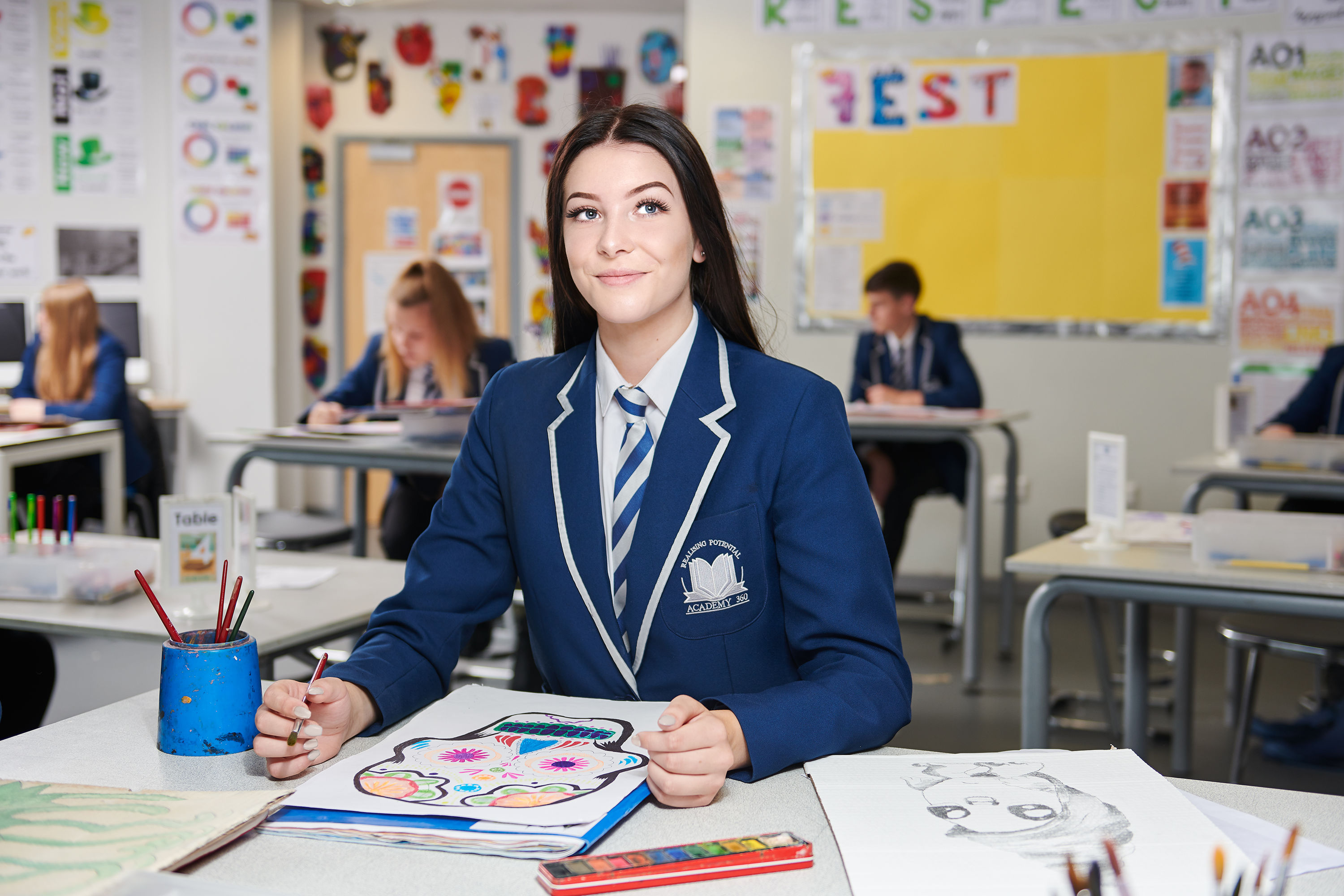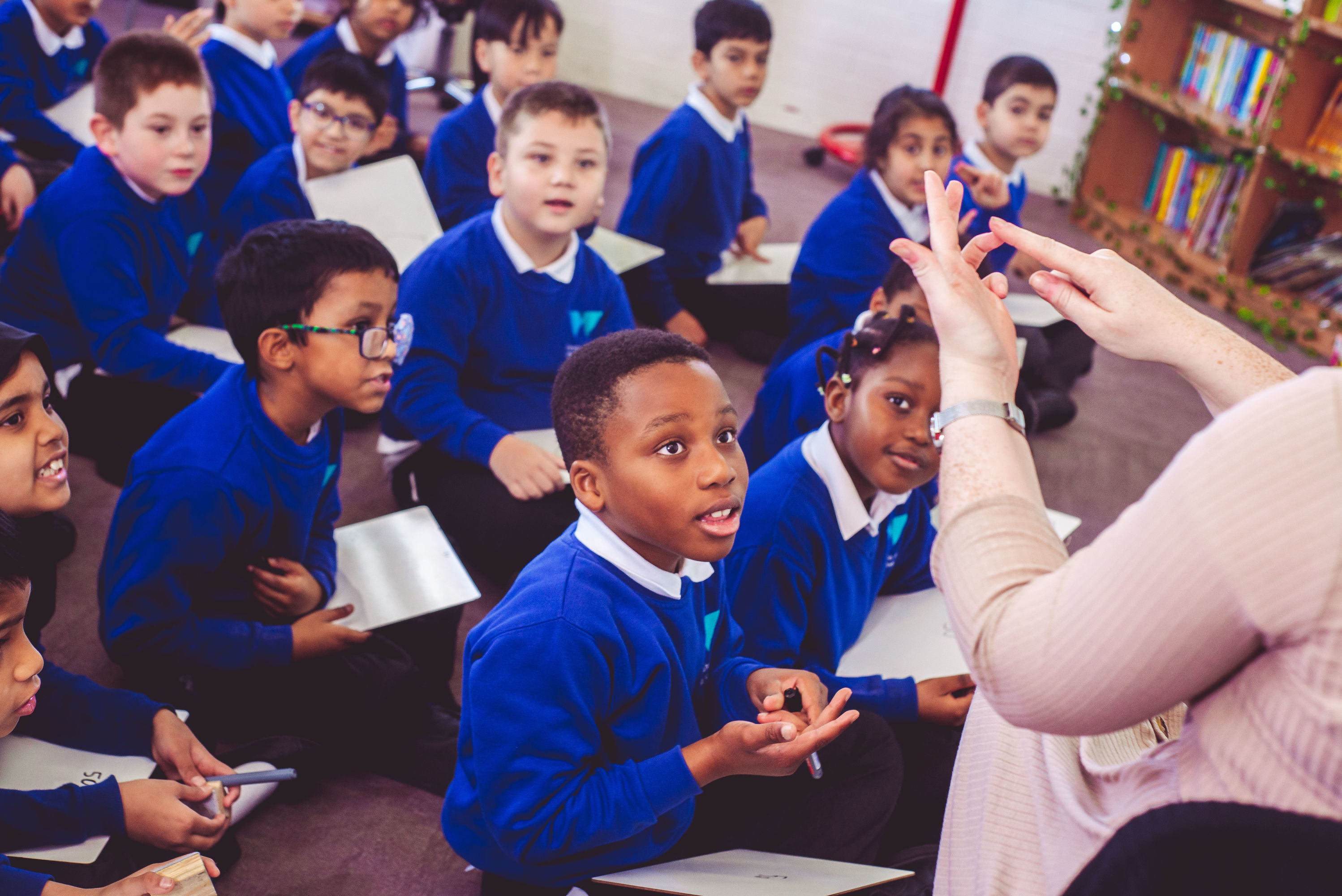- Home
- Extraordinary Education
- Building Citizens of Tomorrow
Building Citizens of Tomorrow
Character Education.
We believe in the importance of developing essential character skills for students to thrive in education, employment, and entrepreneurship. Our Trust is proud to deliver the Skills Builder programme. There are eight essential character skills that will be taught, developed, and used throughout the curriculum. We approach these eight essential skills with the same rigour as those associated with literacy and maths.

Digital Literacy.
Through our investment in high-quality digital technology, we remove barriers to learning and support pupils to work at the right pace, in the right way, for them. Our 1:1 iPad strategy empowers all learners—including those with SEND and EAL—with personalised support, accessibility features, and adaptive teaching that meets their individual needs. This ensures every child can access the full curriculum, participate fully in lessons, and develop the skills needed for success in a digital world. We are proud to be an Apple Regional Training Centre.

Reading.
We are committed to ensuring that every child can read fluently, confidently, and with enjoyment. We believe reading is the foundation for lifelong learning and opportunity. Our Academies prioritise high-quality, systematic reading instruction from the earliest stages, supported by inclusive strategies, expert teaching, and a love of books. Through targeted intervention, family engagement, and rich reading environments, we ensure all pupils—regardless of background or starting point—develop the skills and passion for reading that will unlock their full potential.
Oracy, Debate and Rhetoric.
We are committed to developing pupils’ confidence, fluency, and skill in spoken language through a strong focus on oracy, rhetoric, and debate. Across all phases, pupils are taught to express their ideas clearly, listen actively, and engage respectfully with the views of others. From structured classroom discussions to formal debating opportunities and public speaking events, we ensure pupils develop the communication skills needed for academic success, future careers, and active citizenship.
British Values.
We actively promote the fundamental British values of democracy, the rule of law, individual liberty, mutual respect, and tolerance of those with different faiths and beliefs. These values are embedded across our curriculum and wider school life, helping pupils develop a strong sense of citizenship and social responsibility. Through assemblies, debates, student leadership, and our inclusive approach to personal development, we ensure that every child understands their rights and responsibilities and learns to respect and value diversity in modern Britain.
Health and Wellbeing.
We are committed to supporting the health and wellbeing of every child. Our approach includes a strong focus on mental health, emotional resilience, and physical well-being, ensuring pupils feel safe, supported, and ready to learn. Through a structured personal development curriculum, access to trained staff, and early intervention strategies, we promote positive mental health and provide the tools pupils need to manage challenges. From healthy eating and physical activity to mindfulness and mental health support, we aim to create a nurturing environment where all children can thrive.
Sustainability and Decarbonisation.
Our decarbonisation strategy focuses on reducing our environmental impact through energy-efficient buildings, greener travel initiatives, and responsible resource use. We are embedding sustainability into the curriculum so that every child understands their role in protecting the planet. By taking action today—from reducing carbon emissions to promoting biodiversity—we are equipping our pupils to become environmentally responsible citizens and stewards of tomorrow’s world.


